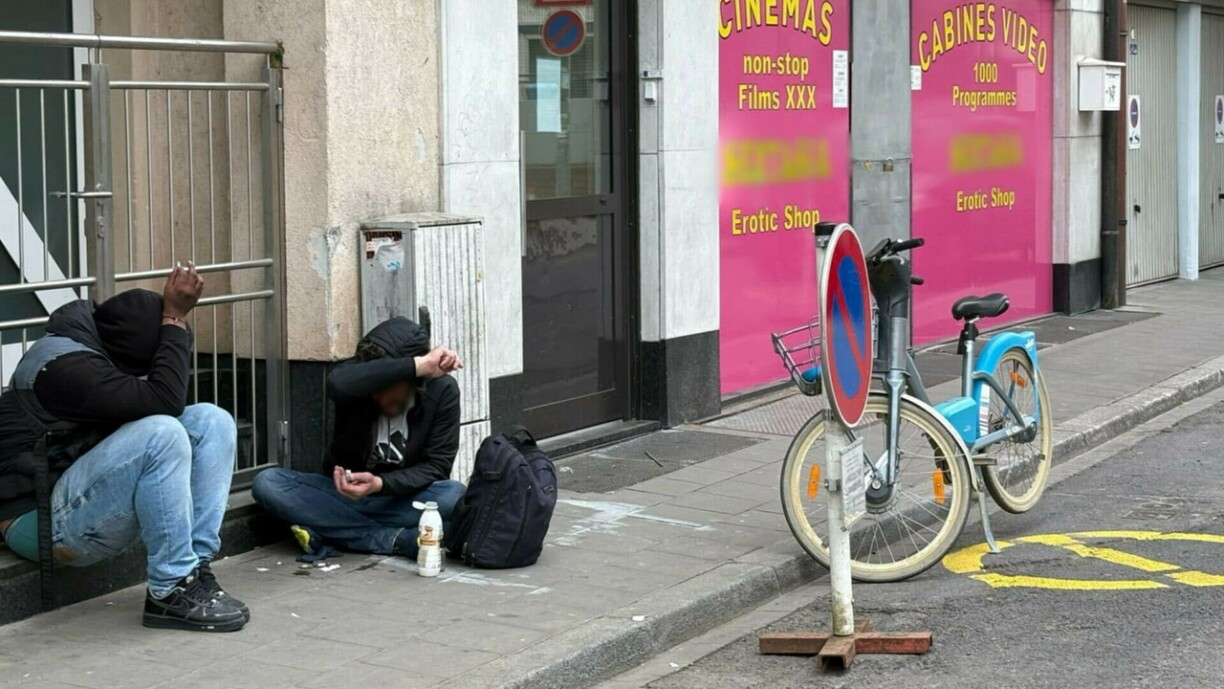
“The dealers are there every day, from 9am to 10pm, right outside our building.” This was the stark reality shared just days ago by a couple living in Luxembourg’s Gare district, in an interview with RTL about their daily encounters with drug dealers and people squatting in their building entrance.
The article prompted a strong reaction from the public. In response, RTL has chosen to publish testimonies from Sandra and Julie (names have been changed), two city residents who share their growing concern and frustration.
Sandra, a lifelong resident of the Gare neighbourhood, recalls a time when things felt very different. “I grew up here”, she writes. “My family has lived in this neighbourhood since the 1970s. It never had the best reputation, but I still have fond memories – riding my bike on Rue de Strasbourg, for example. That’s something many parents wouldn’t even consider letting their kids do today.”
She says drug use was present back then too, but far less visible: “Addicts kept to hidden corners or averted their gaze when children walked past. Now, they sit right in front of building entrances without a second thought.” What used to feel like the exception has become the norm, she says, and “there’s a sense of total impunity spreading through the neighbourhood like a cancer”.
For Sandra, the biggest concern is that these issues are not new, “they’ve been going on for decades,” she writes, “and it’s deeply frustrating to see how long they’ve been allowed to persist.”
The problems intensified, she says, after construction work began on Rue de Strasbourg, pushing drug-related activity into nearby streets: “It feels like someone slapped a fresh coat of paint on a crumbling wall and called it a solution.”
Politicians may speak of increased patrols and improved safety, she says, but the ground reality feels unchanged.
One day, Sandra and her neighbours were robbed just outside their front door. Despite filing a police report, submitting fingerprints and a photo of the suspect, nothing came of it. “The same man still sits in front of our building. He eats there. He deals drugs. And nobody does anything”, she writes.
She describes a chilling exchange with a police officer during a call-out: “I asked why the neighbourhood had deteriorated so badly. His reply? ‘It was like this ten years ago, and it’ll still be like this when I die. This is a rotten neighbourhood. If you choose to live here, you just have to get used to it.’”
Though she makes clear she respects the police and the challenges they face, Sandra questions whether they too feel abandoned – left powerless by decisions from higher up: “We’re not blaming the officers, but something clearly isn’t working. We’re being told to adapt to criminality instead of seeing meaningful action.”
Neighbours, she says, are losing hope: “We’re already hearing talk of forming a militia. When people call the police and no one shows up anymore, even for serious incidents, what message does that send?”
“There are no legal consequences”, she writes, adding that the “police know the names and faces of the offenders. So do the dealers – they know they have nothing to fear”.
When she once confronted a dealer outside her building, warning him that security cameras were in place, he replied bluntly: “I couldn’t care less.” That, she says, sums up the atmosphere perfectly.
She concludes with a stark question: “Has the Gare district become a lawless zone? Whether the answer is yes or no, it’s time to act, before this gets completely out of control.”
Julie, who lives just a few streets away in Hollerich, says the problem isn’t limited to the Gare district. “It’s now affecting areas like Pont Adolphe, the Pétrusse park, Hamilius and Bonnevoie too”, she writes. She and her partner live on Rue de la Vallée, close to major institutions, schools, and family parks, yet the scenes they witness daily are anything but safe.
“In five years, we’ve seen a shocking decline”, she explains. “We regularly face drug users passed out in the street, thefts, people injecting drugs in the children’s park, and even human faeces in front of our building”, she writes.
At the end of her street, she says, is a known drug dealing spot. Nearby, an encampment of drug users, it has become semi-permanent. Despite multiple reports and communication with the police, the couple feel little has changed.
She explains further: “The police told us they were increasing patrols and had cleared some trees behind the buildings to make the area less appealing to dealers, addicts, and sex workers. But cutting down 50 trees didn’t solve the problem, it just made the drug activity more visible.”
The situation, she says, has left her and other residents at breaking point: “We live in a hostile environment, without any guarantee of security. We no longer feel protected, neither by local authorities nor by the police. And we’re expected to live side-by-side with criminal behaviour that no one seems willing to stop.”
Julie ends her letter with a stark plea: “I’m writing not just to share my story, but to express real anger, because this situation is being ignored by the very people meant to protect us. I love my country. But it’s long past the time for the authorities to take real, effective action, before this becomes completely unmanageable.”